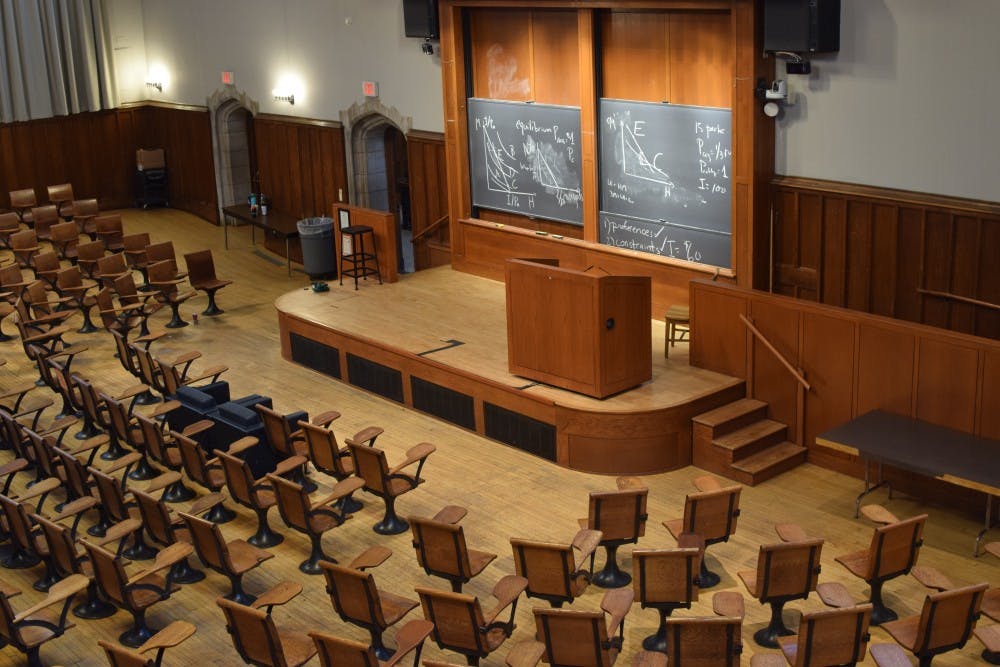As the University begins to increase its undergraduate student population in the upcoming years, it will naturally have to hire more faculty if it wishes to keep the same student-to-faculty ratio. When hiring new professors, the University should acknowledge the clear benefits that seminar-style courses have over lecture-based ones, and accordingly, hire more professors than would be needed to merely maintain the student-to-faculty ratio.
The introduction of more faculty will mean an increase in courses, and this marks a perfect moment to offer more seminars. To be clear, the University should not simply get rid of its lecture courses, as they are a necessary component of college education, since some classes have such high demand that they could never exist in a seminar format. For lecture courses that only have 20 to 30 students, however, it would be better to turn the class into a seminar, possibly with multiple sections, as opposed to the traditional format of two lectures and one precept a week.
In terms of class time per week, a lecture and seminar course essentially take up the same amount of time. However, having the entire week’s material at one time accomplishes several goals. First, it is efficient because it prevents students and professors from having to repeatedly travel to and from the course throughout the week, instead allowing all the class time to occur at once. By combining lectures and precepts into a single time block, it ensures that a professor can take time from one area and move it to another depending on that week’s material.
For example, if a particular week needs more class discussion and less lecturing within the seminar, then the professor could easily accomplish this. Finally, this course structure would increase attendance due to the class discussion aspect of the grading; students rarely miss seminars where their absence is evident. Lecture courses which take attendance face challenges like friends signing in for one another, or students just not signing up for the class as a way to avoid the requirement to attend all classes.
If the number of seminars is to be increased, this must be accompanied by an improvement in the student-to-faculty ratio. Were a higher percentage of courses to become seminars, and were the student-to-faculty ratio to remain constant, then a situation may arise where lecture courses inevitably become larger. We do not need more lectures the size of those for massive introductory-level courses.
While this would take University resources, if an institution of higher learning should be willing to spend money on one thing, it should be on hiring the people that allow for instruction to occur in the first place. There would be other tangential benefits to a better student-to-faculty ratio, such as the fact that ensuring junior paper and thesis advisors would not have to advise as many students in a given year, allowing for more attention per student.
Were more classes to use a seminar format, there is the natural question of what role graduate students should play in such a system. The University has already expressed its disinterest in expanding the size of the graduate student body, citing its desire to maintain a small size with no intent on adding any professional schools. Therefore, were the University to increase its number of lecture courses after adding more undergraduates, there may not be enough graduate students to sufficiently fill all the precepting roles. Changing the seminar- to-lecture ratio would protect against a deficit of preceptors, and an increase in the number of professors would also help in this regard.
As the University continues its expansion, it should evaluate what classroom dynamics are most prudential in bolstering the knowledge students receive from their courses, and consider what benefits a higher number of seminars would offer to the intellectual life on campus.

Hunter Campbell is a senior politics major from Sunderland, Vt. He can be reached at hunterc@princeton.edu.









